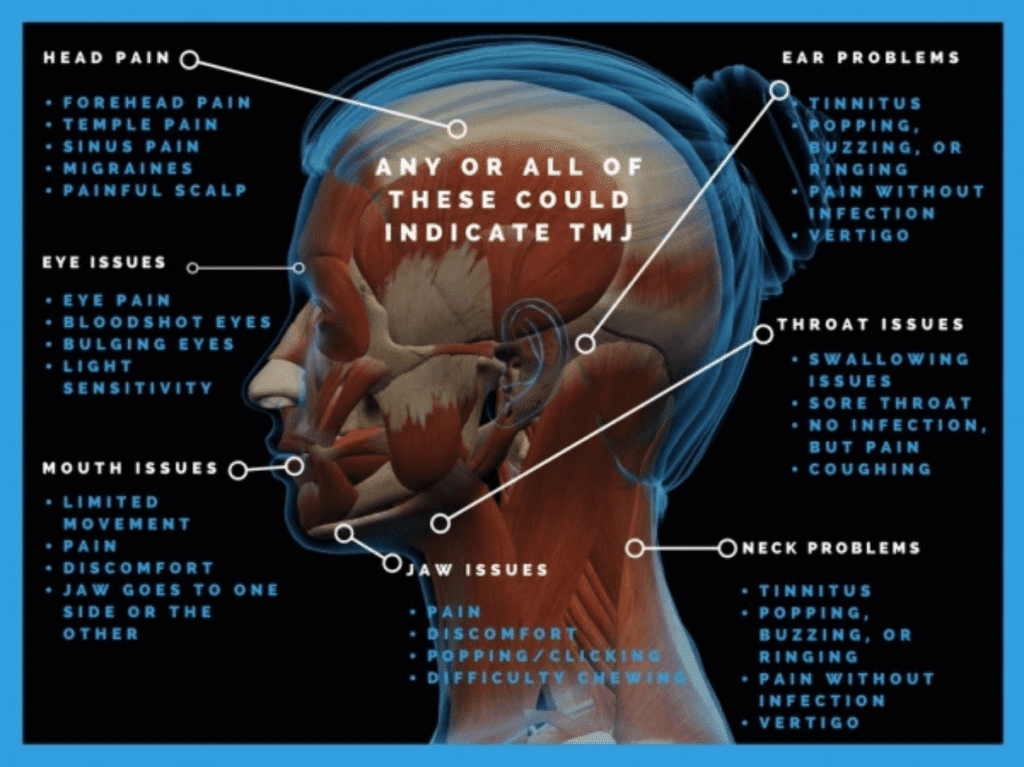In today’s fast-paced world, stress has become an inevitable part of our lives. But did you know that it might be the underlying cause of your TMJ pain? Let’s delve deeper into this jaw-dropping truth and understand how stress and TMJ pain are interconnected.
Understanding TMJ Pain: A Brief Overview
Temporomandibular Joint Disorder, commonly known as TMJ, refers to a condition that affects the jaw joint and the muscles that control jaw movement. It can lead to various symptoms, including jaw pain, difficulty chewing, and clicking or popping sounds when opening or closing the mouth.
The Link Between Stress and TMJ Pain
Research suggests a significant correlation between stress levels and TMJ pain. When you’re under stress, your body tends to tense up, including the muscles in your jaw. This prolonged muscle tension can exacerbate TMJ symptoms and contribute to the development of the disorder.
How Stress Impacts TMJ Pain
- Muscle Tension: Stress triggers the body’s natural “fight or flight” response, leading to muscle tension throughout the body, including the jaw muscles. This constant tension can strain the TMJ, resulting in pain and discomfort.
- Bruxism: Stress can also contribute to bruxism, a condition characterized by teeth grinding or clenching. This habit puts excessive pressure on the TMJ, leading to pain and inflammation over time.
- Reduced Pain Threshold: Chronic stress can lower your pain threshold, making you more sensitive to TMJ symptoms. Even minor discomfort can feel intensified, further impacting your quality of life.
Managing TMJ Pain Through Stress Relief
Fortunately, there are various strategies you can implement to manage TMJ pain by reducing stress levels:
- Stress Management Techniques: Incorporate stress-relief techniques into your daily routine, such as deep breathing exercises, meditation, yoga, or progressive muscle relaxation.
- Regular Exercise: Engage in regular physical activity to alleviate stress and tension in the body. Activities like walking, swimming, or cycling can promote relaxation and improve overall well-being.
- Healthy Lifestyle Choices: Maintain a balanced diet, adequate sleep, and limit caffeine and alcohol consumption. These lifestyle changes can help reduce stress and alleviate TMJ symptoms.
- Seek Professional Help: If stress and TMJ pain persist, consider seeking professional help from a therapist or counselor. Cognitive-behavioral therapy (CBT) can be particularly effective in managing stress and its associated symptoms.
Conclusion
In conclusion, the connection between stress and TMJ pain highlights the importance of addressing both physical and emotional well-being. By adopting stress management techniques and making healthy lifestyle choices, you can effectively alleviate TMJ symptoms and improve your overall quality of life. Take proactive steps today to break free from the grip of stress and embrace a pain-free future. Remember, managing stress not only benefits your mental health but also plays a crucial role in alleviating physical ailments like TMJ pain. Take charge of your well-being today and pave the way for a healthier tomorrow.





